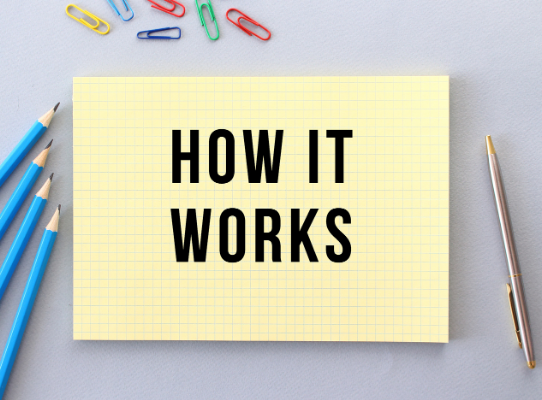For construction companies, access to a business capital loan can mean the difference between skyrocketing toward success and never getting off the ground. That’s why no-strings attached loans, like those offered by the Small Business Administration (SBA), are such an attractive prospect for business owners in need of financing.
One of the many functions of the SBA is to act as a middle-man between lenders and borrowers to help secure crucial loans for new businesses. SBA loans are an entrepreneur’s dream-they promise large sums, generous terms, low interest rates, and backing by the SBA for up to 85% of their total value.
The eligibility standards for SBA loans are understandably stringent, which means not every business owner will qualify.
In this article, we’ll be going over some of the advantages, characteristics, and requirements of SBA loans for construction companies, as well as exploring a few of the best alternative small business loans for contractors.
SBA Loan Requirements
In order to qualify for an SBA loan, you’ll need to have a minimum credit score of at least 680, an extensive personal credit history, and a willingness to endure the sometimes agonizing process of submitting massive quantities of official paperwork. You’ll also need a good deal of patience, as it can take months to hear back about your prospective loan’s approval status.
If you believe you’d make a good candidate for an SBA construction loan and you’re determined to throw your cap into the ring, your first step will be to narrow down the type of loan you think will best serve your business.
There are three main classifications of SBA loans, each of which could be the difference-maker you’re looking for depending on your company’s size, specialization, and existing resources.
SBA 7(a) Loans
SBA 7(a) loans are one of the most popular business loans for construction companies. They come with advances of up to $5 million in funds, fantastically low interest rates, and a relaxed timeframe for repayment. To obtain an SBA 7(a) loan, your intended purpose for it must meet the SBA’s standards of approval for eligible use. Examples of eligible use include buying equipment, increasing working capital, and refinancing or consolidating debt.
SBA CDC/504 Loans
CDC/504 loans are specifically structured to boost purchasing power for major fixed assets, such as heavy machinery.
With amounts topping out at a whopping $5.5 million and repayment terms set for as far out as 10-20 years, a CDC/504 loan could be just the solution for you – if your company will be tackling large-scale projects.
SBA Microloans
As their name suggests, microloans are smaller-value loans meant to provide additional support to entrepreneurs with limited means. SBA microloans can be an excellent financing option for business owners who are only in need of around $50,000 or less.
And since these loans can be paid back at a leisurely pace over the span of up to six years, you won’t feel like you’re in a race against time once the money lands in your account.
Is Equipment Financing Your Best Choice?
Equipment financing is another popular form of construction company funding that contractors often use to get the ball rolling on fledgling startups.
With a typical equipment financing plan, the lender puts up as much as 80-100% of the money you need to start operating. That means you’ll have no trouble procuring all the necessary machinery, tools, protective equipment, vehicles, and other material assets used in construction work.
Equipment financing plans fall under the heading of asset-based loans. In this case, the collateral for the money you receive is the estimated market value of the equipment itself. If you fail to keep up with your payments, the lender has the right to repossess your equipment, leaving you right back where you started.
Still, equipment financing could be your most promising means of acquiring funding overall, especially if your business is still in its infancy or you’ve previously been turned down for an SBA loan.
Other Financing Options for Your Construction Business
Appealing to the SBA isn’t the only way for determined contractors to score much-needed business loans for construction companies. SBA loans for home builders are an excellent option, but if you don’t meet the SBA loan requirements, or you absolutely have to have capital ASAP, there are alternatives. For example, you can always take out a business term loan or business line of credit.
Business term loans are lump-sum payouts with predetermined amounts, repayment schedules, and interest rates. Their one-and-done nature can make them ideal for contractors who need help making big purchases or getting major projects underway.
With a flexible line of credit, you’ll enjoy the ability to draw on a renewable reserve of funds at your discretion and pay the money back later. You’ll only pay interest on the money you use, and interest rates on lines of credit tend to be considerably lower than those attached to other types of business loans.
Working capital loans for construction companies differ in regards to their particular terms and conditions, but they generally share a couple of key similarities, namely, less exclusive eligibility standards and more immediate access to aid.
Another attractive aspect of business loans is the freedom they bring-if you’re approved for a term loan or line of credit, you can use it however you see fit, whether it’s repairing broken equipment, building a second office, or commissioning decals for your company vehicles.
How To Apply for an SBA Loan
Applying for an SBA loan on your own can be a complicated process. Fortunately, ROK Financial is here to help.
To get started, simply take a few seconds to fill out our 15 second online application. We’ll then match you up with one of our expert financial advisors, who will walk you through the process and handle all the heavy lifting.
We can help you select the best funding option for your business, whether it’s one of the SBA loans for construction companies or an alternative, and get you set up in as little as 45 days.













